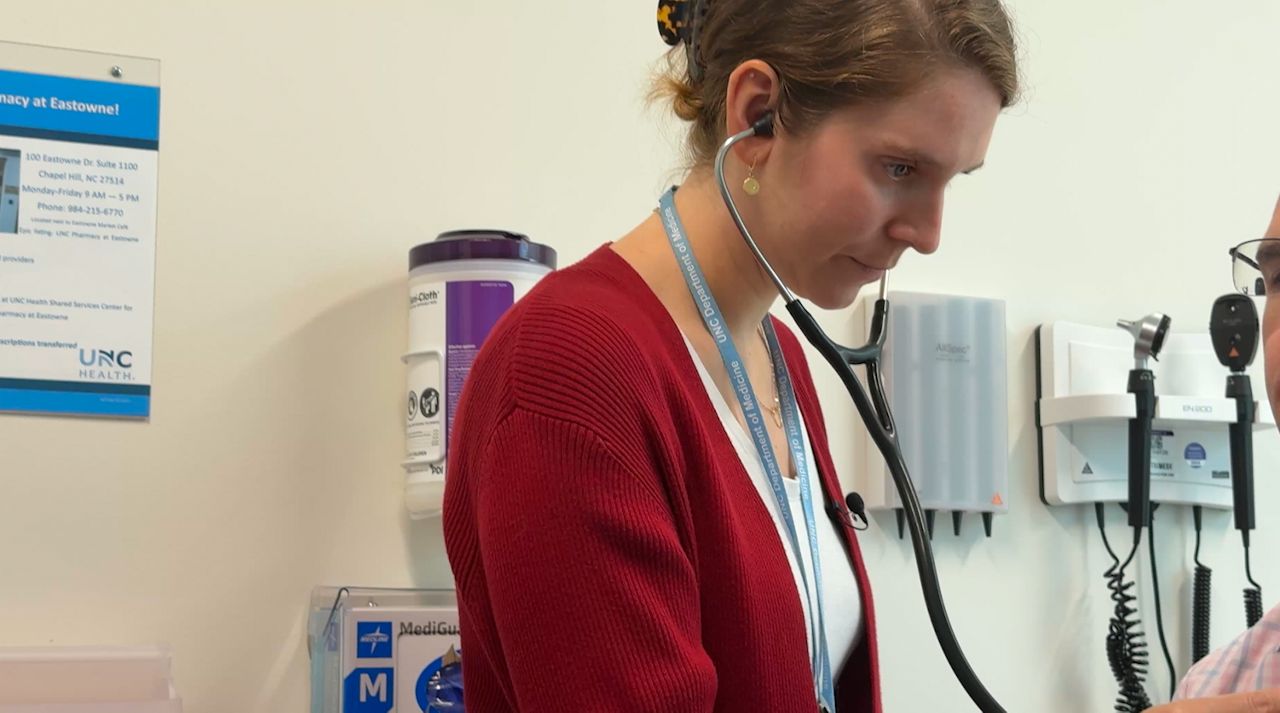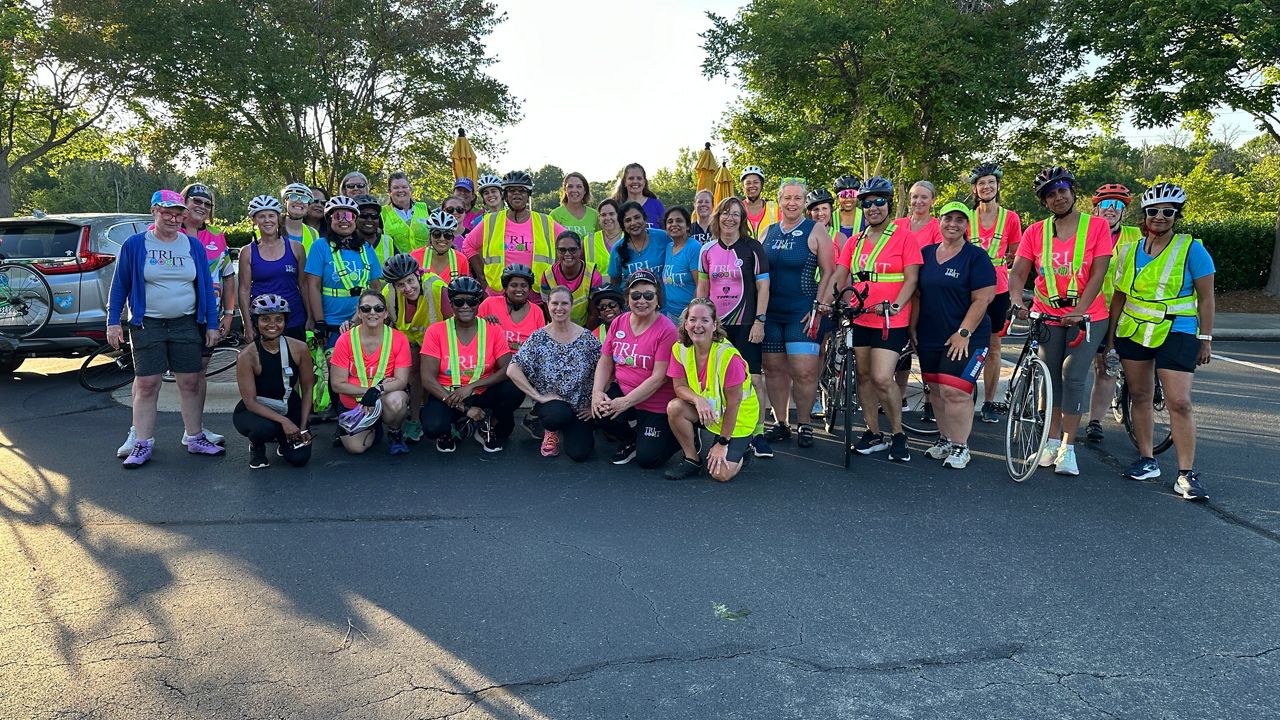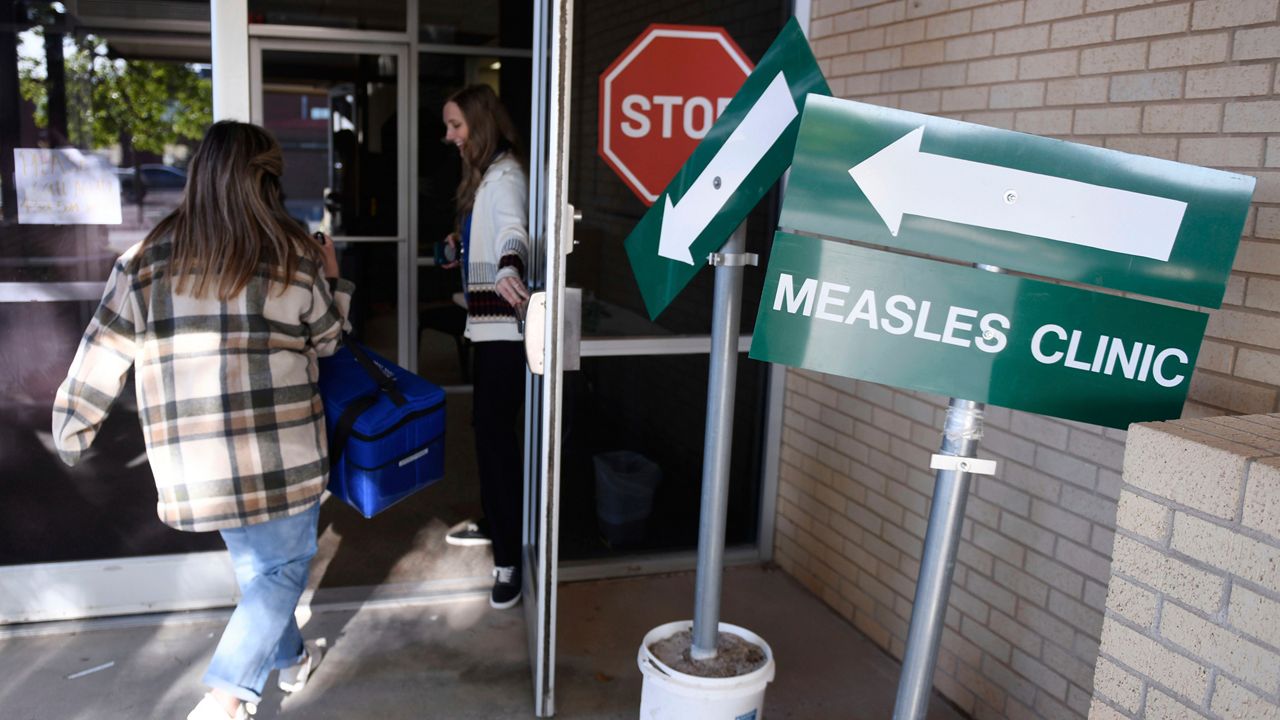While conventional literacy practices focus far more on nonactivity, some learn best when they do not have to sit still. Free movement is the key characteristic of the Wake County Public Libraries' Sensory Storytime.
This isn’t your mom and dad’s story hour where children are motionless no matter what.
Public librarian Keith Hayes encourages the opposite.
“Kids who need to be able to move around a lot, it's more OK for them to move and express themselves,” Hayes said.
Hayes works at the Cary branch of WCPL.
“I got a lot of practice when my kid was younger,” Hayes said.
Hayes, 51, said Sensory Storytime is a welcoming, entertaining contrast to the more traditional attempt at literacy for families with children on the autism spectrum and little ones with overwhelming sensory sensitivities.
“One of the reasons I became a librarian was, (because when I was a child where I lived) it was a typical, like kind of old lady who was like, 'hush, everybody.' And I didn't really want to be there,” Hayes said.
His attitude to libraries has changed a bit since then. As he stood before a small class in mid-October, he laid out the only rule participants must follow.
“The most important rule is gonna be have fun,” Hayes said.
There are no loud sounds, no bright lights or cramped spaces. There are only visual schedules, small crowds, available headphones and interactive education.
“(To see) they don't have to feel like they're suffering, because a whole bunch of rules is pretty cool,” he said.
Hayes believes allowing children to be themselves leads to a better educational outcome.
After four years of piloting the program, public demand is expanding how many libraries offer these monthly sessions. When the opportunity presented itself in the recent past to Hayes, he immediately volunteered.
“I feel like it makes them feel like the library is really a place for them, a place where they can come have fun. A place they want to come back to. And just like I can just create, like, good memories, good impressions. So they want to come back again and again,” Hayes said.“I feel like it makes them feel like the library is really a place for them, a place where they can come have fun. A place they want to come back to. And just like I can just create, like, good memories, good impressions. So they want to come back again and again,” Hayes said.
Erin Foley is the creator of the program.
“We know that our story times are great. We know that they're engaging, they're educational. And we knew that having a Sensory Storytime that was more welcoming to kids that have sensory needs would be really beneficial,” Foley said.
Foley said Sensory Storytime follows the Every Child Ready to Read principles: talking, singing, reading, writing and playing.
She said their staff received training from the Autism Society of North Carolina and parents of autistic children gave feedback before piloting the smash hit with the community more than four years ago. Moms and dads are also encouraged to reserve a spot in advance. The end goal is to have it offered at all of their locations. The readings are tailor-fit for 3- to 5-year-olds, but all ages are welcome too.
“I think as a parent myself, I'm always thinking, how can we connect with families in Wake County?” Foley said.
The children’s librarian had kind words for her coworker as well.
“He is warm and welcoming and really engaging, and it's really great to see him meeting the needs of the community here,” Foley said.
Hayes said these are the types of resources communities need.
“I love being an educational influence on kids and just being a positive male role model,” Hayes said.
Story hours can last up to one hour or less. Foley said her goal as the program manager for the WCPL Every Family Ready to Achieve Initiative is to create as much exposure for their programs as possible.
“There are families everywhere that would benefit from the library, and it just sort of touches our heart a little bit more when you can think about it from a parent's perspective,” Foley said.









